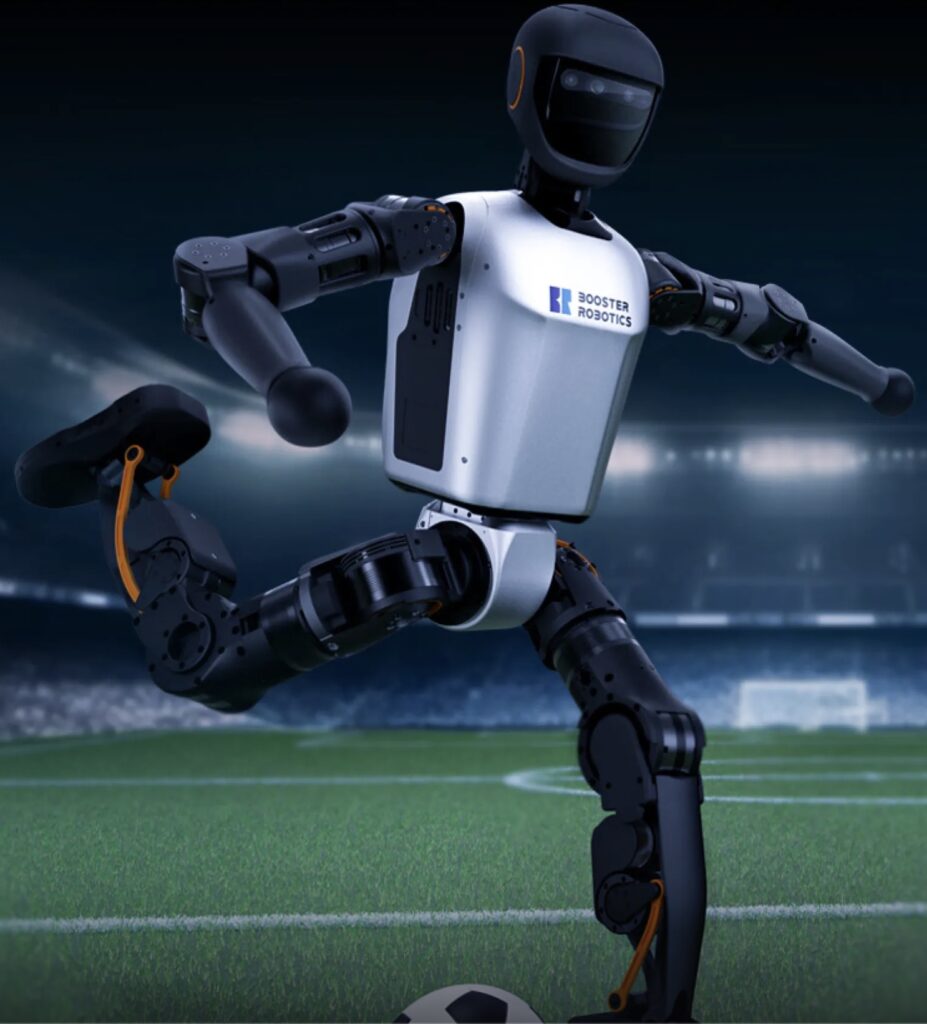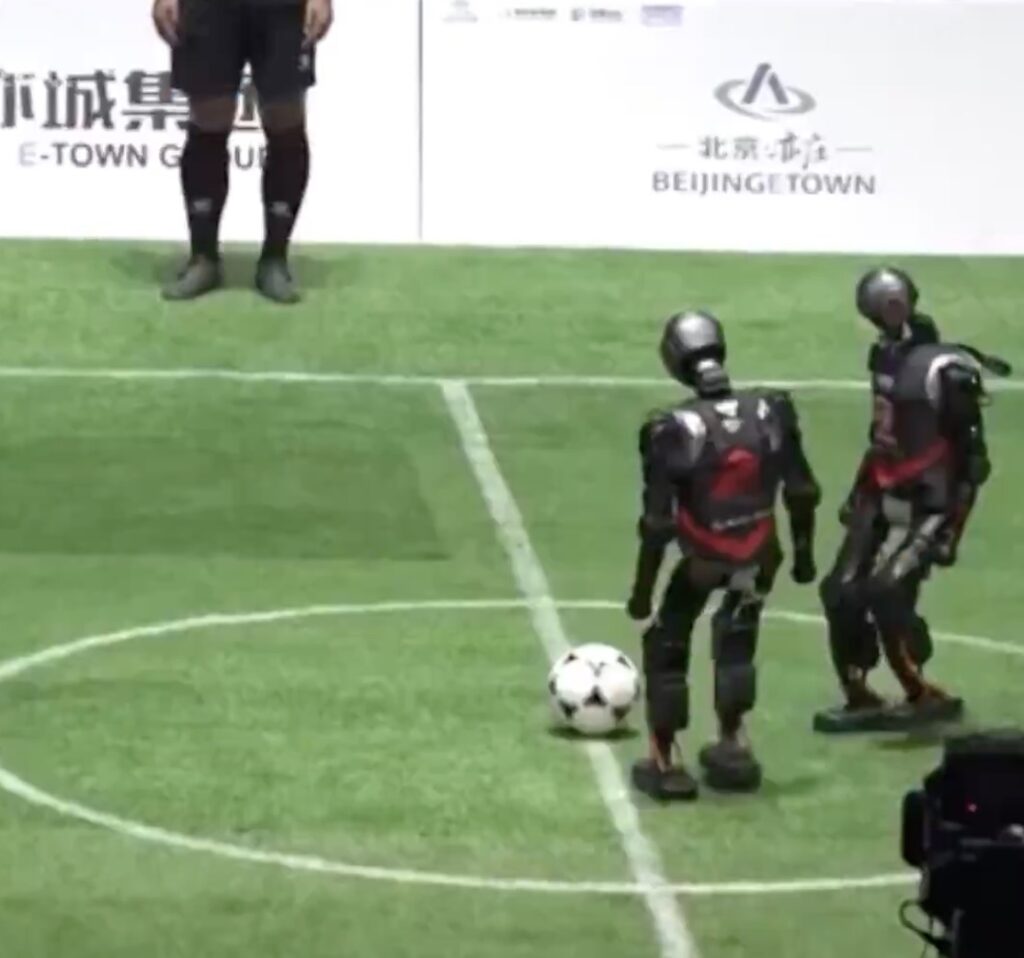AI-Powered Humanoids Steal the Show in Beijing’s First Robot Soccer League
- China unveiled its first-ever humanoid robot soccer league, the RoBoLeague, in Beijing, featuring fully autonomous AI-controlled robots supplied by Booster Robotics.
- The robots, with skills akin to 5- to 6-year-old children, entertained crowds with their clumsy yet determined play, including dramatic falls and stretcher rescues.
- Booster Robotics founder Cheng Hao envisions rapid advancements in robot abilities, aiming for future human-robot matches to foster trust and showcase technological progress.

On a buzzing Saturday night in Beijing, the world of sports took a futuristic leap as China launched its inaugural RoBoLeague, a humanoid robot soccer league that blended cutting-edge technology with the universal appeal of the beautiful game. Four teams of fully autonomous, AI-driven robots, supplied by Booster Robotics, clashed in a 3-on-3 showdown that had spectators on the edge of their seats. These weren’t mere remote-controlled gadgets; they were independent machines, navigating the field with the wobbly charm of a kindergartner and the relentless drive of a World Cup contender. The result? A spectacle that was part sci-fi thriller, part slapstick comedy, and entirely captivating.
The robots, designed and built by Booster Robotics, showcased a unique blend of innovation and entertainment. Relying on advanced visual sensors, they tracked the ball, planned their moves, and occasionally collided in a heap of mechanical limbs. Falls were frequent, with some bots needing to be carried off the field on stretchers, much to the delight of the crowd—especially the younger fans who couldn’t get enough of the drama. Yet, amidst the tumbles, there were moments of brilliance: a well-timed pass here, a determined shuffle toward the goal there. No human intervention was allowed during play, as each robot operated solely on its AI-driven strategies. “They’re completely on their own,” explained Cheng Hao, founder and CEO of Booster Robotics, emphasizing the groundbreaking autonomy of these pint-sized players.

Beyond the laughs and cheers, the RoBoLeague carried a deeper purpose. Booster Robotics collaborated with university teams across China, each programming their robots with custom AI algorithms for decision-making, formations, and passing tactics. Cheng highlighted the dual mission behind choosing soccer as the competitive arena: “First, to encourage students to apply their algorithmic skills to real-world robotics, and second, to showcase the robots’ ability to walk autonomously and stably, withstand collisions, and demonstrate higher levels of intelligence and safety.” The championship match saw Tsinghua University’s THU Robotics clinch the title with a 5-3 victory over China Agricultural University’s Mountain Sea squad. Fans roared with excitement, some celebrating as if they’d just witnessed a human championship. “They did really well,” beamed Mr. Wu, a Tsinghua supporter, while acknowledging the unexpected flair of the Mountain Sea team.
The event wasn’t just a one-off gimmick; it’s a glimpse into a future where technology and humanity intersect on the playing field. Cheng Hao envisions rapid progress in the robots’ capabilities, predicting that their skills will grow exponentially over time. He believes that, eventually, these machines could challenge adult human teams—not just in competition, but in collaboration. “It’s not about the result,” Cheng noted thoughtfully. “It’s about showing that robots can play safely with people.” His dream is to see humans and robots sharing the same pitch, building trust through every pass and tackle, proving that coexistence is not only possible but also enriching.
As China’s men’s national soccer team sits out the upcoming World Cup, the RoBoLeague has emerged as an unexpected source of national pride and excitement. The packed stadium in Beijing was a testament to its instant appeal, with fans of all ages marveling at the potential of these mechanical athletes. If the debut of the RoBoLeague is any indication, robot soccer might just become the most thrilling thing in Chinese sports. And with Booster Robotics at the helm, pushing the boundaries of what AI and robotics can achieve, the future of the game—both on and off the field—looks brighter, bolder, and a whole lot more robotic.
